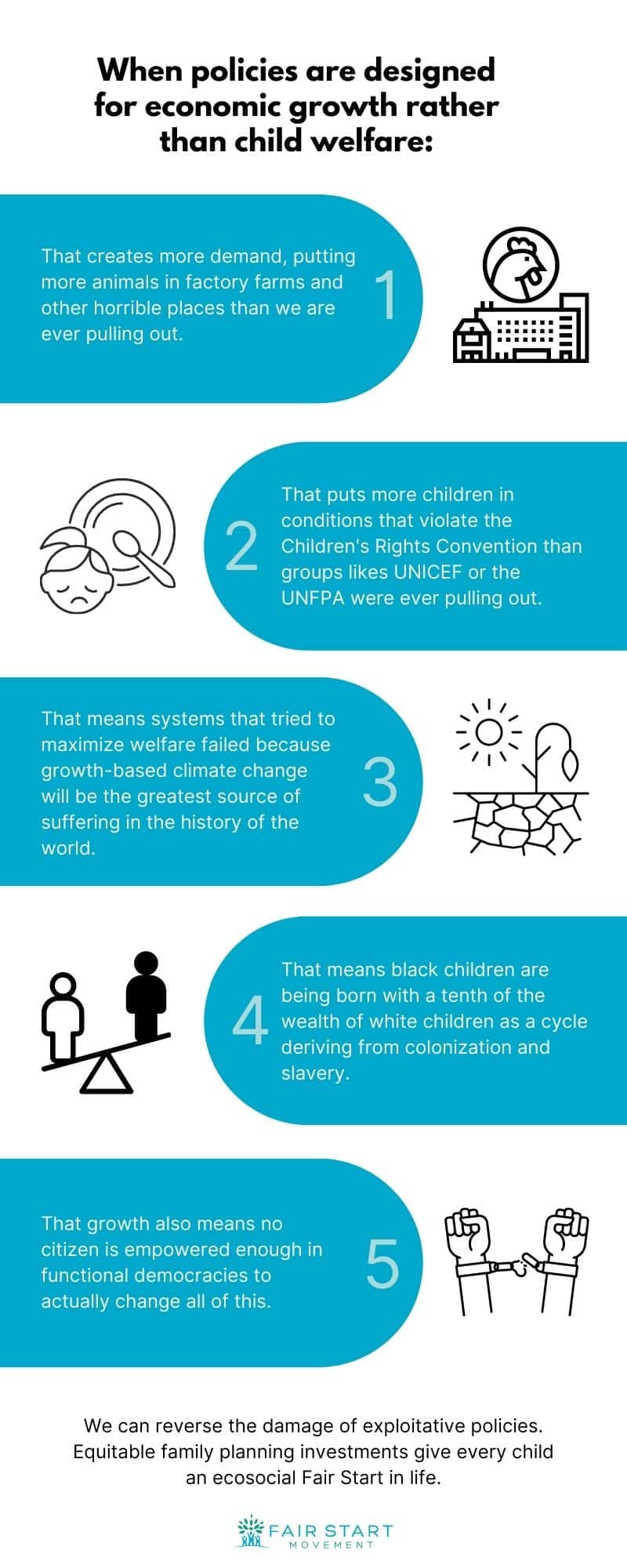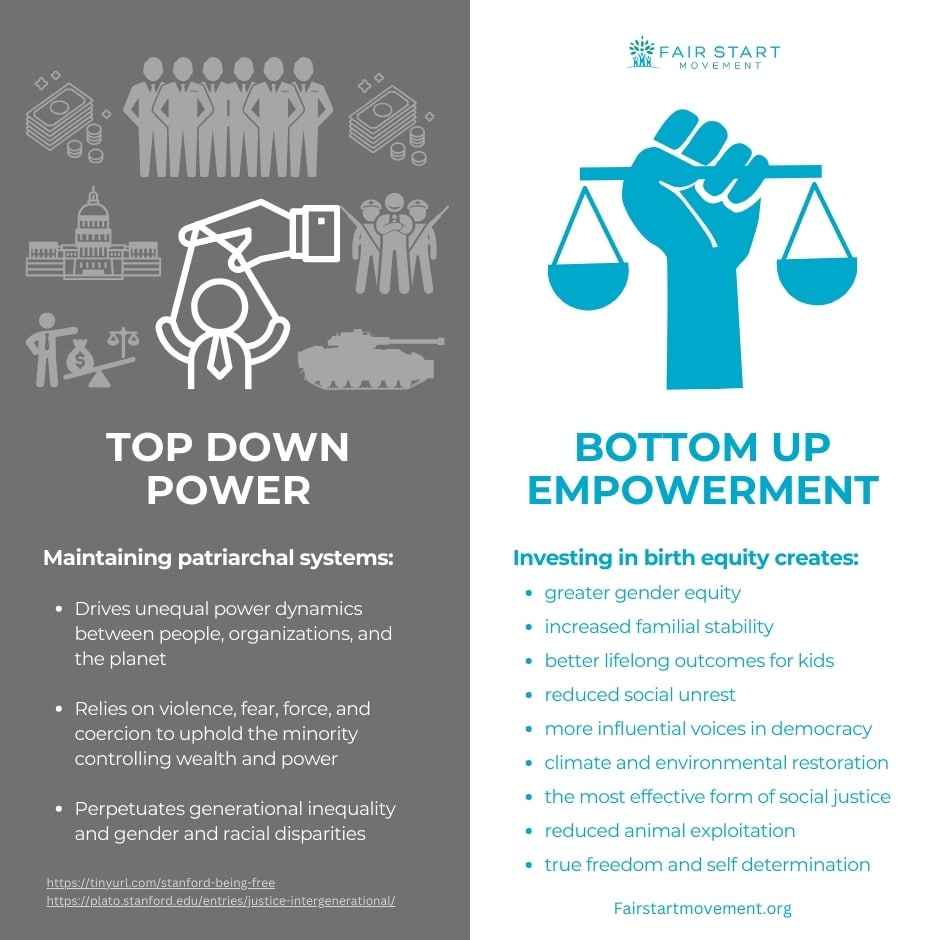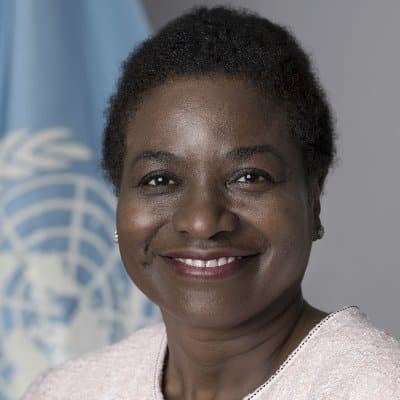The United Nations Population Fund describes themselves as:
UNFPA is the United Nations sexual and reproductive health agency. Our mission is to deliver a world where every pregnancy is wanted, every childbirth is safe and every young person’s potential is fulfilled.
We promote gender equality and empower women, girls and young people to take control of their bodies and their futures. We work with partners in more than 150 countries to provide access to a wide range of sexual and reproductive health services. Our goal is ending unmet need for family planning, preventable maternal death, and gender-based violence and harmful practices including child marriage and female genital mutilation by 2030.
Our motto is:
“Ensuring rights and choices for all.”
This is inaccurate, and hides the agency’s role in refusing to entitle future children with the rights they are promised under the Children’s Rights Convention, and backing an unsustainable growth model that enabled large and environmentally destructive families in the past, families that violated the rights of would-be families today to have any children in safe conditions.
Given the United Nations own predictions of hundreds of millions of climate deaths, the UNFPA’s refusal to limit procreative autonomy with children’s rights did more harm to their claimed values than they did good.
Test the UNFPA and their lead Dr. Natalia Kanem’s commitment to their claim. Will she and other leaders there admit the extreme wealth in the world today was made by not having to pay the costs of protecting the environment, and investing in the equity of each child? Do they back moving that wealth as entitled reparations to young women to plan their families in a way that does not lace such costs on others?
If they will not take these steps, they are protecting wealth, including the wealth of discrete key targets carrying massive death debt, rather than women and children.

The UNFPA is still using a fundamental family planning and human rights model that prioritizes the contradiction-in-terms of procreative autonomy/isolation, rather than entitling democratic birth, developmental, and emancipatory share equity.
Share equity: Nothing has a greater impact, addressing not just lowering emissions to self-determination standard – lower emissions than the failed welfare standards that were based on the economic growth models that caused the crisis, but ensuring women and children the resources they need to be resilient in the crisis, including a greater voice in governance through models that avoid growth-based democratic vote dilution, or share inequity.
TAKE ACTION: Contact Kanem and urge her to embrace equity over isolation.


